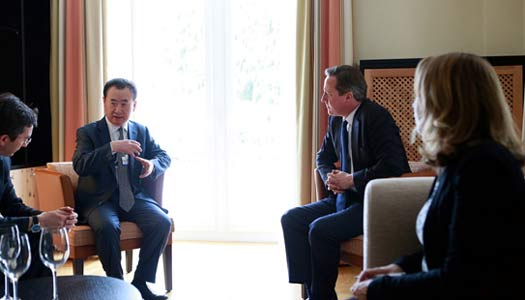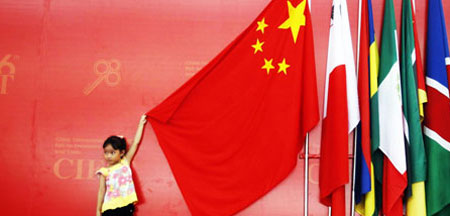Going global helps to feed aspirations
Updated: 2013-03-28 07:39Bright Food accrued a market share of 1.4 percent in terms of packaged foods and 1.6 percent in the ice cream market, said the London-based researcher. Major competitors include domestic counterparts such as Inner Mongolia Mengniu Dairy (Group) Co Ltd and Inner Mongolia Yili Industrial Group Co Ltd, in addition to foreign players such as Nestle SA.
But seven years ago, there was an industry malaise plaguing almost all State-owned enterprises because they operated less efficiently with obsolete business models. Ge decided to reverse this tide by mapping out a global ambition and tuning into international standards.
After taking the helm as a top executive overseeing the company's overseas expansion, Ge sensed a growing demand for imported food, fueled by the burgeoning middle class with an increasing disposable income.
However, beyond the headlines about China's growing global clout, Ge believed that the establishment of world-class domestic companies was lagging behind the overall growth of the economy. This put China at a disadvantage, which led to limited bargaining power at industry-wide talks.
He referred to a visit two decades ago to the headquarters of Nestle, the world's largest food company by revenue. In addition to the various flavors of ice creams he tasted, Ge was most impressed by a poster outside a research and development laboratory.
"How could you let a girl with freckles on her face advertise for you?" Ge asked his French counterpart, puzzled. He was told the advertisement was designed for the Japanese market because girls with freckles were regarded as cute and beautiful in Japanese culture.
It suddenly occurred to Ge that to increase the number of China's equivalents of Nestle, The Coca-Cola Co, McDonald's Corp or Walmart Stores Inc required not only great financial resources but also management experiences in international marketing, high technology, as well as branding skills.
To beef up market vitality, Ge steered the company to make overseas acquisitions. He identified several channels to expand overseas, significantly through mergers and acquisitions.
Under his leadership, the company is rolling out a steady overseas plan. It aims to expand its major businesses - dairy, wines, sugar, branded food and distribution channels - overseas. Prioritized destinations are Australia, New Zealand and Europe. The company aims to boost overseas sales to as much as 30 percent of its total in five years. So far, Bright Food has completed four major international buyouts in the past two years. But Ge warns corporate decision-makers to balance their "passion and rationality" in international deals.
On the one hand, there is a spontaneous drive for Chinese companies to go beyond borders, as international costs for obtaining resources and financing keep dropping, while a high level of efficiency remains in place. On the other hand, companies should avoid making international transactions for the sake of going global and ought to stick to their own bottom lines.
"When we were in final talks with Diva Bordeaux, a major French wine merchant, Diva's financial consultant kept raising the bid price and insisted that Bright Food made corresponding changes to the new corporate structure," Ge recalled.
- BYD exports three electric cars to Thailand
- Grid gets first jolt of residential solar power
- US now largest buyer of China's exports
- China's outbound M&As on the rise
- Tobacco control may entail price, tax rises
- Quanzhou becomes pilot financial reform zone
- New automobiles shine at Geneva Motor Show
- World's longest high-speed rail 'on track'
- Jiugui Liquor involved in plasticizer scandal again
- Accident reignites school bus safety concerns
- China to revise labor law
- Trademark registration under scrutiny
- Dinner ban takes toll on liquor firms
- CIC tables bid for London's Chiswick Park
- Property buyers eye overseas market
- Call for law to protect personal information
- China to cut train ticket prices
- Christmas business
- Solar industry to get jolt from new policies
- KFC chicken under spotlight















